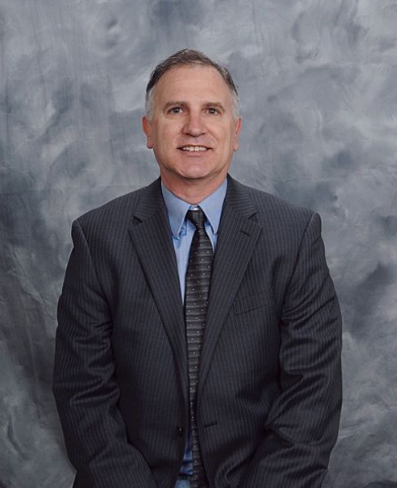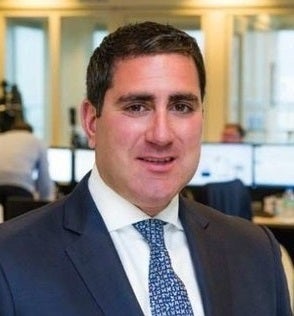medical professionals
See the following -
A Look at Open Source Image Recognition Technology
 Image recognition technology promises great potential in areas from public safety to healthcare...At the Supercomputing Conference in Denver last year, I discovered an interesting project as I walked the expo floor. A PhD student from Louisiana State University, Shayan Shams, had set up a large monitor displaying a webcam image. Overlaid on the image were colored boxes with labels. As I looked closer, I realized the labels identified objects on a table. Of course, I had to play with it. As I moved each object on the table, its label followed. I moved some objects that were off-camera into the field of view, and the system identified them too.
Image recognition technology promises great potential in areas from public safety to healthcare...At the Supercomputing Conference in Denver last year, I discovered an interesting project as I walked the expo floor. A PhD student from Louisiana State University, Shayan Shams, had set up a large monitor displaying a webcam image. Overlaid on the image were colored boxes with labels. As I looked closer, I realized the labels identified objects on a table. Of course, I had to play with it. As I moved each object on the table, its label followed. I moved some objects that were off-camera into the field of view, and the system identified them too.
- Login to post comments
Alfresco Enables Digital Collaboration Among Pathologists to Advance Patient Healthcare
 The American Society for Clinical Pathology (ASCP), the world’s largest professional membership organization for pathologists and laboratory professionals, has paved the way to digital pathology with the creation of ASCPedia, an innovative and educational online slide library utilizing Alfresco Software...ASCP created a library using high resolution digital scanning to convert glass slides to digital files and used Alfresco One, Alfresco’s Enterprise Content Management (ECM) platform, to compile, store and organize the digital slides to make it easier for ASCP’s more than 100,000 members to collaborate and share information.
The American Society for Clinical Pathology (ASCP), the world’s largest professional membership organization for pathologists and laboratory professionals, has paved the way to digital pathology with the creation of ASCPedia, an innovative and educational online slide library utilizing Alfresco Software...ASCP created a library using high resolution digital scanning to convert glass slides to digital files and used Alfresco One, Alfresco’s Enterprise Content Management (ECM) platform, to compile, store and organize the digital slides to make it easier for ASCP’s more than 100,000 members to collaborate and share information.
- Login to post comments
Doctors Use Wikipedia to Collaborate in the Production of Quality Medical Information
Six years ago, Doctor James Heilman was working a night shift in the ER when he came across an error-ridden article on Wikipedia. Someone else might have used the article to dismiss the online encyclopedia, which was then less than half the size it is now. Instead, Heilman decided to improve the article. “I noticed an edit button and realized that I could fix it. Sort of got hooked from there. I’m still finding lots of articles that need a great deal of work before they reflect the best available medical evidence.”
- Login to post comments
Jean Piaget & the Usability of Healthcare Software
 The usability of healthcare software, or lack thereof, has been a topic of discussion for several years. The problem has become so widespread that the American Medical Association (AMA) has recently issued a framework for improving the ease of use of EHRs that, in part, includes the reduction of 'cognitive load.' Piaget’s theories can be applied to understanding some of the reasons why many EHRs are just too hard to use. They can provide guidance for finding ways to reduce the cognitive workload that so often hinders the user experience of EHR systems. Read More »
The usability of healthcare software, or lack thereof, has been a topic of discussion for several years. The problem has become so widespread that the American Medical Association (AMA) has recently issued a framework for improving the ease of use of EHRs that, in part, includes the reduction of 'cognitive load.' Piaget’s theories can be applied to understanding some of the reasons why many EHRs are just too hard to use. They can provide guidance for finding ways to reduce the cognitive workload that so often hinders the user experience of EHR systems. Read More »
- Login to post comments
Open Source Software Is Transforming Healthcare
 In the summer of 2022, the UK government and NHS England published its Open Source Policy, stating that open source technology is: Particularly suitable for use within the healthcare industry where, through active collaboration between IT suppliers and user/clinicians communities, solutions can be honed to maximise benefits to delivery of health and social care. The public statement by NHS England is just the latest development in a broader trend: The wholehearted embrace of open source software by the healthcare sector. And no wonder; open source presents myriad opportunities for this most complex of industries, with potential solutions across various sub-sectors. Yes, open source is now powering everything from medical wearables to healthcare human resource management.
In the summer of 2022, the UK government and NHS England published its Open Source Policy, stating that open source technology is: Particularly suitable for use within the healthcare industry where, through active collaboration between IT suppliers and user/clinicians communities, solutions can be honed to maximise benefits to delivery of health and social care. The public statement by NHS England is just the latest development in a broader trend: The wholehearted embrace of open source software by the healthcare sector. And no wonder; open source presents myriad opportunities for this most complex of industries, with potential solutions across various sub-sectors. Yes, open source is now powering everything from medical wearables to healthcare human resource management.
- Login to post comments